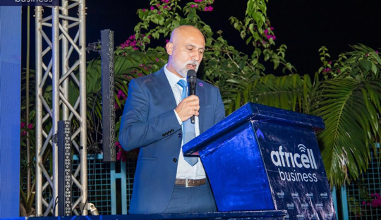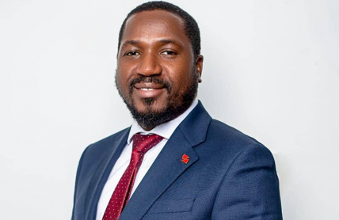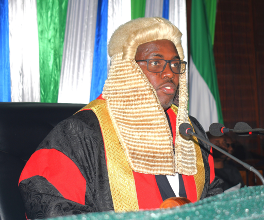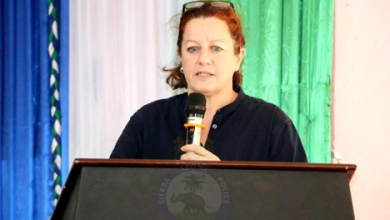Police Block Jagaban’s Groundbreaking Ceremony for Motorbike Assembly Plant
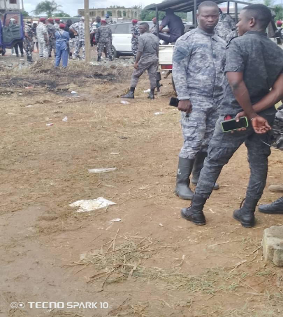
For the second time in less than a week, Sierra Leonean authorities have disrupted the groundbreaking ceremony for a proposed motorbike assembly plant spearheaded by renowned businessman Sheik Alhaji Mohamed Omodu Kamara, widely known as Jagaban.
The latest event, scheduled for Saturday, was abruptly halted by the Sierra Leone Police, despite organizers insisting that prior clearance had been granted. This incident follows a similar disruption the previous Saturday, when police reportedly stormed the project site, dismantled equipment, and prevented the ceremony from going ahead.
The proposed assembly plant has garnered praise for its potential to create jobs, stimulate local economic growth, and boost Sierra Leone’s industrial capacity. For years, citizens—especially the youth—have urged Jagaban to invest directly in his homeland, often criticizing his business focus abroad.
In response, Jagaban recently unveiled a series of initiatives aimed at driving sustainable development and empowering local communities. The motorbike assembly plant stands as the flagship project in this renewed commitment to national development.
However, sources close to the event organizers allege that although police clearance had been obtained, a sudden “order from above” led to the intervention and shutdown.
To date, no official explanation has been provided by the government or security agencies regarding the repeated disruptions. The lack of transparency has sparked growing concern and frustration—especially among entrepreneurs, civil society groups, and youth leaders—who see the project as a vital opportunity for progress.
Supporters of Jagaban are now demanding clarity and accountability from the authorities, questioning why a private investment initiative—designed to benefit ordinary Sierra Leoneans—is being obstructed without justification.
As public pressure mounts and tensions simmer, the nation awaits a formal statement from the government on its position regarding private sector-led development and whether these disruptions reflect broader concerns about political interference and investment freedom in Sierra Leone.


